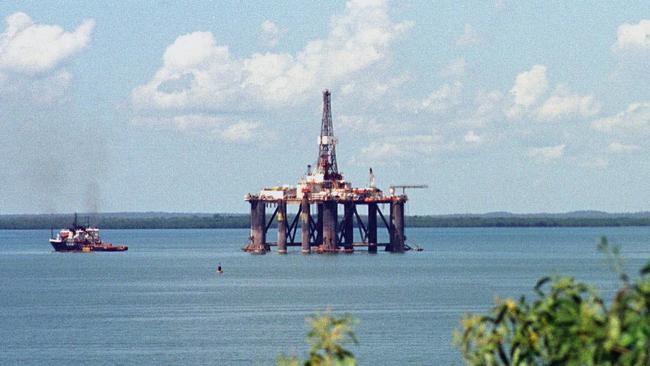Castleton Commodities takes legal action against federal government over shuttered offshore oil platform
Castleton Commodities takes federal government and others to court over shuttered offshore oil platform, as the industry braces for a hefty rise in the costs of a clean-up bill for the Timor Sea project.

The federal government faces legal action from a commodities player owed money from the demise of an offshore oil platform as the industry braces for a significant rise in the costs of a clean-up bill for the Timor Sea project.
Castleton Commodities, the secured creditor of two companies that owned the Northern Endeavour floating platform, has launched legal action against the Commonwealth, Northern Oil & Gas Australia and Timor Sea Oil & Gas Australia in the Supreme Court of NSW.
It’s demanded a receiver is appointed to recoup funds from the failed production ship and a declaration it is first in line for any proceeds, budget papers show.
The Northern Endeavour debacle sparked a broader shake-up across Australia’s oil and gas industry over the looming costs of decommissioning ageing offshore rigs and infrastructure and who should pay in the event of a company collapse.
Tens of billions of dollars will have to be spent by some of Australia’s biggest energy players over the next two decades as an array of pipes and production platforms are removed in once prolific oil and gas fields such as Victoria’s Bass Strait and Western Australia.
The Timor fields were once owned by Woodside Petroleum, but were sold to NOGA – a smaller operator headed up by Angus Karroll – as they neared the end of their life. The new owners promptly went under, which raised fears clean-up costs could eventually cost the taxpayer hundreds of millions of dollars.
Instead, the government announced last year it would introduce a temporary levy across Australia’s entire offshore production industry to fund the clean-up of the Northern Endeavour floating platform and associated oilfields.
Costs to decommission the floating vessel are being recovered through the government’s proposed cost recovery levy, split across the industry much to the annoyance of some operators who question why Woodside is not footing the entire bill.
Last year’s budget papers showed the government expects to spend $47.4m on maintaining the Northern Endeavour in the 2020-21 financial year.
However, costs are expected to spiral with a government-hired contractor, Upstream Production Solutions, now in charge of shutting down and disconnecting the entire facility.
Treasury’s resources and energy costs are forecast to rise from $376m in 2021-22 to $406m in 2022-23 before falling back to $244m in 2023-24. $98m the following year and $58m in 2025-26.
“The decrease in expenses from 2022-23 to 2025-26 reflects the funding profile associated with the decommissioning of the Northern Endeavour,” the budget papers said.
Treasury said the clean-up is being split into three phases, although costs for the first tranche remain commercial in confidence while the next two stages have yet to be assessed.
The first phase involves the disconnection of the floating production, storage and offtake facility which will be followed by the permanent plug and abandonment of the wells and, finally, the removal of subsea infrastructure.
“Actual costs associated with Northern Endeavour decommissioning will be recovered through the Government’s proposed Laminaria and Corallina Decommissioning Cost Recovery Levy,” Treasury said.
The government’s contract with Upstream PS includes a clause which limits each party’s liability to 7.5 per cent of the contract budget, although that level can be changed by 10 per cent if the overall budget increases by 10 per cent or more. “The government has also provided an indemnity against any pollution or loss of well control related to the FPSO, except to the extent caused by Upstream PS’s gross negligence or wilful misconduct. The liability cap does not apply to these indemnities,” Treasury said.
The government said it had signed insurance contracts and taken out membership with oil spill response agencies which will limit its financial exposure.

